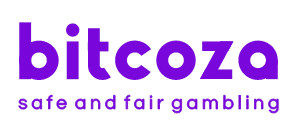The legality of cryptocurrency casinos in Canada has sparked debate. Understanding Canadian gambling laws, regulations, and the adoption of cryptocurrency as a transaction method is important.
This discussion aims to shed light on the status of crypto casinos within the country, including licensing requirements, taxation implications, and security measures. This information is essential for both players and operators in the industry.
Are Crypto Casinos Legal in Canada?
Yes, crypto gambling sites in Canada are legal. They are licensed by reputable authorities such as the Kahnawake Gambling Commission and MGA, making them a legitimate option for Canadian players. Many players in Canada prefer gambling with different types of digital currency due to the benefits they offer.
Understanding Canadian Gambling Laws
Understanding Canadian Gambling Laws is important for anyone involved in the Canadian gambling industry, as the laws vary by province and have a significant impact on the operation and participation in gambling activities.
The Canadian gambling industry is valued at US$12.5 billion in 2022, with the global mobile gambling market projected at $123.6 billion for 2027. It is important to note that 48% of Canadians agree that online betting should be allowed, while 74% of gambling businesses are focusing on improving data usage. Stricter laws are expected to ensure security with the increasing player count.
In the context of Canadian Criminal Code and Gambling Laws, various sections criminalize being found in a common betting house, placing bets for others, and outline lawful punishment for lotteries and games of chance. The legal age for gambling in Canada is 19, except for some lotteries at 18, and different provinces have their own regulations.
Moreover, the Alcohol and Gaming Commission of Ontario regulates the online gambling market, indicating the provincial variations in gambling laws. Understanding these laws is essential for compliance and to navigate the complex regulatory landscape of the Canadian gambling industry.
History of Canadian Gambling Regulations
The history of Canadian gambling laws has been shaped by the industry’s significant value and the projected growth of the global mobile gambling market.
In 1982, all forms of gambling were banned in Canada, but over time, provinces gained the authority to set their own rules, leading to the legalization of lotteries and raffles for charitable purposes.
The Canadian Criminal Code criminalizes activities related to betting houses and placing bets for others. The legal age for gambling in Canada is 19, with variations in certain provinces.
Online gambling laws in Canada are regulated by different authorities across the provinces, and the legal status of crypto gambling is aligned with traditional gambling laws, with online casinos with proper licenses being able to adopt cryptocurrency as a transaction method.
Legal Framework for Crypto Gambling
The legal framework for crypto gambling in Canada is evolving within the context of existing gambling laws. Online crypto casinos is regulated by similar rules as traditional gambling, and Canadian laws do not explicitly reference gambling with Bitcoin or other cryptocurrencies.
Enforcement of crypto gambling laws in Canada is complex due to the grey area, but licensing requirements for crypto casinos are the same as those for traditional casinos.
As the industry continues to grow, clearer guidelines and regulations specific to crypto gambling are expected to emerge, providing a more structured framework for operators and players.
Licensing Requirements for Crypto Gambling
The licensing requirements for crypto gambling require a comprehensive framework to ensure regulatory compliance and integrity within the digital currency space.
Online crypto gambling in Canada is regulated by similar rules as traditional gambling, although Canadian gambling laws do not explicitly reference gambling with Bitcoin or other cryptocurrencies. The enforcement of crypto gambling laws in Canada is complex due to the grey area surrounding them.
However, online casinos with proper licenses can adopt cryptocurrency as a transaction method. Therefore, licensing requirements for crypto casinos in Canada are the same as those for traditional casinos. It is essential for operators to adhere to these requirements to ensure a secure and transparent gambling environment for players.
As the use of cryptocurrency in gambling continues to gain traction, it is vital for both operators and regulatory authorities to work together to establish clear guidelines and standards for the integration of digital currencies into the gambling industry.
Taxation of Gambling Winnings in Canada
In Canada, there is no tax on gambling winnings, as they are not considered a business transaction.
This means that for the average individual gambler, their winnings are not subject to taxation. This legal recognition aligns with the changing gambling industry in Canada and provides clarity for individuals.
Online Security in Canadian Gambling
Robust cybersecurity measures are essential for ensuring the integrity of online gambling platforms in Canada. Implementing strong online security is essential to protect users’ personal and financial information from potential cyber threats. Consider the following table showcasing key security measures in leading online casinos:
| Security Measure | Description | Benefits |
|---|---|---|
| SSL Encryption | Secures data transmission between user and website | Protects sensitive information |
| Two-Factor Authentication | Adds an extra layer of security for user accounts | Prevents unauthorized access |
| Regular Security Audits | Conducted to identify and rectify potential vulnerabilities | Ensures platform integrity |
Popularity of Cryptocurrency Gambling
Experiencing a surge in interest, cryptocurrency gambling has gained notable traction in Canada’s online gaming landscape, reflecting a growing trend towards digital currency adoption in the gambling sector.
The popularity of cryptocurrency gambling in Canada can be attributed to several factors. Cryptocurrencies provide a higher degree of anonymity than traditional gambling, as transactions cannot be easily tracked by banks or the government, offering increased privacy and security.
Cryptocurrency gambling allows for instant deposits and withdrawals, offering a seamless and efficient payment process compared to traditional fiat currency methods. Additionally, cryptocurrencies offer minimal to no commissions for transactions, unlike fiat currency payment methods, which can be time-consuming and incurring higher fees.
The appeal of cryptocurrency gambling in Canada lies in its ability to provide players with a more private, secure, and efficient gambling experience, aligning with the increasing preference for digital currency adoption in the online gambling industry.



